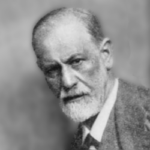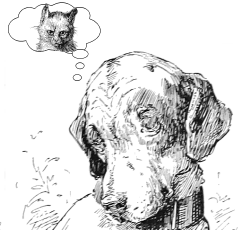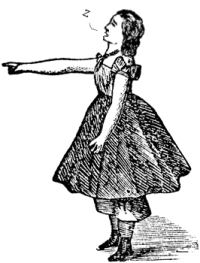 Does the unconscious exist? David B. Feldman asks, and says no. He points out that the unconscious and its influence is a cornerstone of Freudian and other theories, where it is quoted as the explanation for our deeper motivation and our sometimes puzzling behaviour. It may send messages through dreams and other hints, but we have no direct access to it and cannot read its thoughts, even though they may heavily influence our personality.
Does the unconscious exist? David B. Feldman asks, and says no. He points out that the unconscious and its influence is a cornerstone of Freudian and other theories, where it is quoted as the explanation for our deeper motivation and our sometimes puzzling behaviour. It may send messages through dreams and other hints, but we have no direct access to it and cannot read its thoughts, even though they may heavily influence our personality.
Freud’s status as an authority is perhaps not what it once was, but the unconscious is widely accepted as a given, pretty much part of our everyday folk-psychology understanding of our own minds. I think if you asked, a majority of people would say they had had direct experience of their own unconscious knowledge or beliefs affecting the way they behaved. Many psychological experiments have demonstrated ‘priming’ effects, where the subject’s choices are affected by things they have been told or shown previously (although some of these may be affected by the reproducibility problems that have beset psychological research recently, I don’t think the phenomenon of priming in general can be dismissed). Nor is it a purely academic matter. Unconscious bias is generally held to be a serious problem, responsible for the perpetuation of various kinds of discrimination by people who at a conscious level are fair-minded and well-meaning.
Feldman, however, suggests that the unconscious is neither scientifically testable nor logically sound. It may well be true that psychoanalytic explanations are scientifically slippery; mistaken predictions about a given subject can always be attributed to a further hidden motivation or complex, so that while one interpretation can be proved false, the psychoanalytic model overall cannot be. However, more generally there is good scientific evidence for unconscious influences on our behaviour as I’ve mentioned, so perhaps it depends on what kind of unconscious we’re talking about. On the logical front, Feldman suggests that the unconscious is an ‘homunculus’; an example of the kind of explanation that attributes some mental functions to ‘a little man in your head’, a mental module that is just assumed to be able to do whatever a whole brain can do. He quite rightly says that homuncular theories merely defer explanation in a way which is most often useless and unjustified.
But is he right? On one hand people like Dennett, as we’ve discussed in the past, have said that homuncular arguments may be alright with certain provisos; on the other hand, is it clear that the unconscious really is an homuncular entity? The key question, I think, is whether the unconscious is an entity that is just assumed to do all the sorts of things a complete mind would do. If we stick to Freud, Feldman’s charges may have substance; the unconscious seems to have desires and motivations, emotions, and plans; it understands what is going on in our lives pretty well and can make intelligently targeted interventions and encode messages in complex ways. In a lot of ways it is like a complete person – or rather, like three people: id, ego, and superego. A Freudian might argue over that; however, in the final analysis it’s not the decisive issue because we’re not bound to stick to a Freudian or psychoanalytic reading of the unconscious anyway. Again, it depends what kind of unconscious we’re proposing. We could go for a much simpler version which does some basic things for us but at a level far below that a real homunculus. Perhaps we could even speak loosely of an unconscious if it were no more than the combined effect of many separate mental features?
In fact, Feldman accepts all this. He is quite comfortable with our doing things unconsciously, he merely denies the existence of the unconscious as a distinct coherent thinking entity. He uses the example of driving along a familiar route; we perform perfectly, but afterwards cannot remember doing the steering or changing gear at any stage. Myself I think this is actually a matter of memory, not inattention while actually driving – if we were stopped at any point in the journey I don’t think we would have to snap out of some trance-like state; it’s just that we don’t remember. But in general Feldman’s position seems entirely sensible.
There is actually something a little odd in the way we talk about unconsciousness. Virtually everything is unconscious, after all. We don’t remark on the fact that muscles or the gut do their job without being conscious; it’s the unique presence of consciousness in mental activity that is worthy of mention. So why do we even talk about unconscious functions, let alone an unconscious?

 The unconscious is not just un. It works quite differently. So says Tim Crane in a persuasive draft
The unconscious is not just un. It works quite differently. So says Tim Crane in a persuasive draft 
 Does the idea of unconscious free will even make sense? Paula Droege, in the recent JCS, seems to think it might. Generally experiments like
Does the idea of unconscious free will even make sense? Paula Droege, in the recent JCS, seems to think it might. Generally experiments like